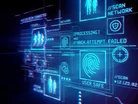Accenture: Emerge stronger with adaptive security

Security leaders are in pole position to make the practical changes to keep their organisations safe and secure and help employees adopt new ways of working that apply adaptive security, claims a report from Accenture.
According to the report, Emerge stronger with adaptive security, working from home has opened new attack vectors and workforce issues for organisations - including those from insider threats.
“Adaptive security offers organisations a secure and smooth experience to achieve business continuity,” commented Accenture.
“Security leaders can reinvent access by using cloud-based solutions to meet the increased demand for fast, frictionless and secure remote access to enterprise data and applications,” highlights the report.
Three challenges organisations face today are how to:
- Outmanoeuvre future uncertainty: Rethink culture, collaborative practices and the technology to enable distributed working environments
- Outwit cybercriminals: Malicious threat actors are taking advantage of vulnerable supply chains, offer more digital experiences and meet the demands of a remote workforce
- Outstep previous performance: Security leaders must evolve how they detect, defend and recover from threats in the face of unprecedented demands.
“As organisations stabilise their current operations, security leaders can put the right controls in place to create a safe and secure working environment to achieve business continuity for their enterprise,” commented Accenture.
Highlighted in the report are the four elements of adaptive security which organisations should apply. They include:
- Secure mindset – Prioritise the human factor. Security leaders should focus on the health and well-being of the workforce
- Secure network access – protect the company infrastructure
- Secure work environments – with remote workforces shift the security focus from an enterprise infrastructure to a virtual and cloud environment
- Secure collaboration – provide the tools and teams to tackle risk
“The use of a zero-trust framework for authentication helps to protect remote access using strong authentication,” comments Accenture.
Five-point plan for secure practices:
Think "anytime, anywhere"
Secure all users, devices, and network traffic consistently with the same degree of effectiveness, regardless of where they are based.
Be transparent
Give users access to what they need when they need it.
Bring calm and confidence
Security leaders can be the catalyst for change, using empathy and compassion to deliver a more agile response.
Where possible, simplify
Consider managed services and automate where it makes sense. Security event response, tool deployment, and rule management can benefit from limited human intervention.
Build for resilience
As organisations look to emerge stronger, business continuity and crisis management plans must be fit for purpose. Engage with business leaders to plan for cybersecurity resilience, backed by the right resources and investments.
Accenture believes a multi-dimensional crisis management strategy, with many work streams and teams that collaborate closely is the answer to security resilience.
For more information on business topics in Europe, Middle East and Africa please take a look at the latest edition of Business Chief EMEA.
Featured Articles
SAP has announced it has appointed a new President for a newly-created EMEA region, aiming to make the most of the opportunities of cloud and AI technology
Technology giant SAP has expanded its portfolio with the acquisition of LeanIX, a leader in enterprise architecture management (EAM) software
To help businesses achieve increased productivity, Siemens and Microsoft are deepening their partnership by showcasing the benefits of generative AI

